Introduction
As quite evident by what environmental researchers have to say about industrial pollution, it can be said that the pollutants largely emanating from the industries can critically affect the environment and shake up the ecosystem. It triggers the birth of highly unfavorable conditions that in turn rules out the healthy living and development of living organisms.
Rapid industrialization together with the advancement in technology has been a major factor that accounts for immensely contributing to environmental pollution. Hence it raises an alarm and calls for concern from the world at large.
Table of Contents
Industrial units, without an iota of doubt, present manifold benefits but on the rear side, they pose risks and hazards that are escalating rapidly. Environmental quality has been witnessing degradation, which can be traced back to the period of the 19th century when the industrial revolution set its foot.
Output in the form of waste produced by industries is left without properly being attended to. To add on their disposal is not even monitored and not much heed is attributed to it. This is further fueled by lack of awareness and education in this sector. Industrial waste indiscriminately pollutes water, air and land.
Industrial pollutants: What are they?
Industrial pollutants can be variably classified but on a major basis, we can say that these pollutants constitute being in gaseous form which when discharged gets dispersed in the atmosphere, brutally polluting it.
To exemplify, some gaseous pollutants can be listed as follows:
- Carbon monoxide
- Hydrogen sulfide
- Ozone
- Hydrogen fluoride
- Nitrogen oxide, etc
These contaminants generally find their source of origin mainly in smelters, manufacturing units, power plants operating on the basis of fossil fuels Etc. These pollutants are a reason behind many respiratory diseases in humans and significantly reduce the level of visibility.
On the other hand, the plants are directly or indirectly affected from air pollutants, this can be done via leaves or the accumulation of chemicals in the soil. The air pollutants critically bring alteration in the physiology of the plants.
Suspended particles in the air cause hindrance in the sunlight's amount reaching the Earth. It highly disrupts the process of photosynthesis. Also the air in and around the industrial area which is mainly polluted, leaves no stone unturned in causing harm to resources by adopting different routes and depending on the toxicity levels of the pollutants.
The industrialization has also caused water pollution. The toxic contaminants even reach the groundwater and degrade its quality. Major pollutants that cause groundwater pollution include mercury, lead, solvents etc.
Industrial pollution has remained a constant threat that has been wreaking havoc ever since the period of the industrial revolution. Pollutants may cast many ill effects as being synergistic or antagonistic in nature. Constant setbacks are experienced by the plants by these pollutants.
Pollution Caused by Heavy Metals
Industrial effluent's major constituent is that of heavy metals. They attract great interest from the environment-concerned community since they are released marking considerable levels and if somehow they get discharged into the groundwater, they can cast toxic effects indirectly threatening the life of living organisms.
These heavy metals that find their home in industrial wastes often entail distribution in diverse phases (geochemical) for example, carbonates. Further it is advisable that one must gather adequate information about the type of industrial waste before getting rid of it mainly through disposal.
Heavy metals cause pollution mercilessly and place the health of humans at the verge of declining and also gives birth to an end number of environment-related problems like a decrease in fertility of soil and yields of crops. Also it significantly leads to a reduction in activities that are carried through the help of microbes.
Pollution that heavy metals cause can be escalated to higher severity levels if not monitored or regulated by set laws and regulations in place. There has to be a framework within which the industrial activities must be carried out. It should be such that it governs all the activities on the industrial spectrum.
Policies in India to Combat Industrial Pollution
Indian constitution lays down in a beautiful manner the rights and duties with respect to environmental protection. The constitution sets forth that it is the responsibility of the state to look into the matters that relate to improving and protecting the environment and also to take steps that must safeguard natural resources.
In contrast to the constitutional restricted policies, there are other national policies in place like National Policy on Pollution Abatement. However these policies cannot be judicially enforced, however they in a way act as a repository of guiding principles and rules for both central and state governments. These policies entail the enumerated principles that act as a guiding factor which are as follows:
- To be able to prevent the pollution levels right away the source of origin
- To be able to equip with the latest technology that is available.
- To work in compliance with the polluter pays principle
- To involve the public at levels of decision-making.
With the coming of the National Environment policy in the year 2006, it swore to work on protecting the environment while simultaneously ensuring that the prosperity in the environment is well maintained. This policy holds a vision to instil a more comprehensive plan that works in the direction of promoting standards related to the environment and governs almost all the activities that are a viable component of development. The major focus being placed on is the industrial sector.
What are the institutions/entities that ensure compliance of environment-related laws in India?
The major institutions that play a critical role in ensuring that environmental acts are enforced in an orderly fashion can be listed as given below:
- Ministry of Environment and forests: MOEF can be construed to be a nodal agency that plays an instrumental role in ensuring that there is coordination within the framework of activities in the environment-related sphere and also deals in formulating policies.
- Central Pollution Control Board: This institution very well falls under the MOEF and has the role of advising the central government regarding any matter that deals with preventing and abating pollution, be it water or air-related.It also governs over the relevant activities as assigned to the state pollution control boards. To add on, the central pollution control board also equips the state pollution control boards with the requisite assistance in the technology-related aspects. The industries that cause severe pollution must be wary of this board since it takes into account their names and prosecutes them. Further, it also helps in organizing activities that facilitate the propagation of education in the realm of protecting the environment.
- State pollution control board: These boards entail attachment to the department dealing with the environment or to the department that deals with the forests or wildlife. The functions performed by them can be listed minutely, which are as follows:
- They very well perform the function of advising the governments confined in states on issues that speak about environmental problems.
- Plays an effective role when it comes to collecting water cess which mounts from the water use.
- Ensure that there is enforcement and implementation of the nationally acclaimed standards.
- Its work ethics involve granting consents to establish under the Air Act and Water Act and also they shoulder the responsibility of authorizing the disposal of hazardous waste in accordance with the rules set out under the EPA.
- Works in the direction of formulating programs that deal extensively on the control of issues related to the environment
State Pollution Control Board in India
It is no straight road when one encounters the need to establish a new business, especially in the manufacturing field. To validate this stance, it can be said that numerous approvals are required to be fetched from the concerned government authorities, which makes it a hefty task. To run on such lines, obtaining consent from the state pollution control board is one such essential requirement.
The industrial or manufacturing units that are set to be established are under a compulsion that warrants the mandatory acquisition of consent as given under the Water and Air Act. They have to get hold of the ‘consent’ prior to even the production process starting.
In the event that the industrial unit falls under the following as given below:
- Hazardous and other wastes( Management and transboundary movement) Rules, 2006
- E-waste management rules
- Plastic waste management rules
- Biomedical waste management rules
The industries as covered under the above-mentioned acts, must abide by the compliance of the grant of consent as given under the Water Act, 1974 and also the Air Act, 1981.
What are the Types of Consent?
In accordance with the provisions of the Air and Water Act, it is evident by the fact that any industry or a process that carries the potential of discharging any sewage or hazardous effluents or is very much likely to pollute the air through the emissions as released by them, must work towards obtaining the consent.
Broadly the consent can be classified as given under the following:
- Consent to establish: This can be considered to be the initial clearance. It must be fetched prior to setting up the industry by any industry or any other process.
- Consent to operate: This falls under the second requirement which simply means that it is required to be obtained after the industry has been set up and has equipped itself with the systems that deal with the pollution control mechanism.
Obtaining Consent: What process must be followed?
The industries have been categorized under numerous colour-based categories mainly for convenience. The colours assigned for this purpose are as given below:
- Red
- Orange
- Green
- White
The basis of the classification of the industries or the plants is basically confined to the potential levels of the industry to cause pollution and also takes into account the pollution index related range to ensure the very purpose in relation to managing consent is adhered to as given under the Air and Water Act.
Overall to be able to obtain content, the applicant must visit the online website of the State pollution control board. The process in whole invites the application to be filed online that must be submitted together with the requisite fees and specified documents.
Subsequently, scrutiny is being done of the location and an assessment is carried out to ensure that the necessary requirements are being met as laid down by the state pollution control Board.
What documents are required to be submitted to obtain consent?
The requirement of documents would differ from state to state but mainly a major chunk of documents that needs to be submitted share similarity which can be jotted below:
Consent to establish
- Plan as to the industrial location
- Extensive details in relation with the product to be manufactured, the raw material to be used, the water source and a report has to be furnished.
- Documents related to land like Rent deed
- MOA
- AOA’
- Partnership deed
Consent to operate
- A copy has to be submitted that relates to the consent that is issued, mainly the last one
- The extensive plan that explains the manufacturing processes
- A detailed report that talks about the hazardous waste or toxic emissions as released by the industry
- Balance sheet copy as issued by the CA.
What is the renewal process and validity of consent?
Consent to establish can be understood to be an activity that is carried out one time only. It entails issuance mainly ranging from three to five years. On the other hand consent to operate entails issuance as based on the colour-based category and remains valid for five to fifteen years.
In order to renew the consent, the industry can apply through the online consent management and monitoring system. There is a system of auto-renewal set out in some states.
Which industries fall under the exempted category?
Industries that fall under the white category are the ones that enjoy the exemption in both the consent categories as given under the Water and Air Act.
What is the penalty?
Imprisonment or fine is attracted in the case any industry fails to obtain consent. The fine that must be paid would amount to ten thousand rupees and imprisonment would be extended to the period of three months.
Conclusion
In a nutshell, we can come to terms with the fact that it is imperative to have a clean and healthy environment that shall sustain the health of living beings. The environment must be provided with protection at all levels. It can be done through collaborative efforts of the communities, governments, social entrepreneurs etc.
Also, the industries should abide by the environmental compliances as set forth with by the governing authority of a certain Nation. Strict law implementation must be adhered to in event of failure to comply with the environment-related laws. A system to monitor pollution levels in and around industries must be set up.
This is a global problem but like every problem has a solution, this can also be well addressed by creating awareness and instilling a sense of care for the environment in the minds of industrialists. Extended producer responsibility which is called EPR must be seriously taken into account. Furthermore, plantation must be done and its relevance must be ingrained in the minds of all the stakeholders.
This portion of the site is for informational purposes only. The content is not legal advice. The statements and opinions are the expression of author, not corpseed, and have not been evaluated by corpseed for accuracy, completeness, or changes in the law.
BOOK A FREE CONSULTATION
Get help from an experienced legal adviser. Schedule your consultation at a time that works for you and it's absolutely FREE.


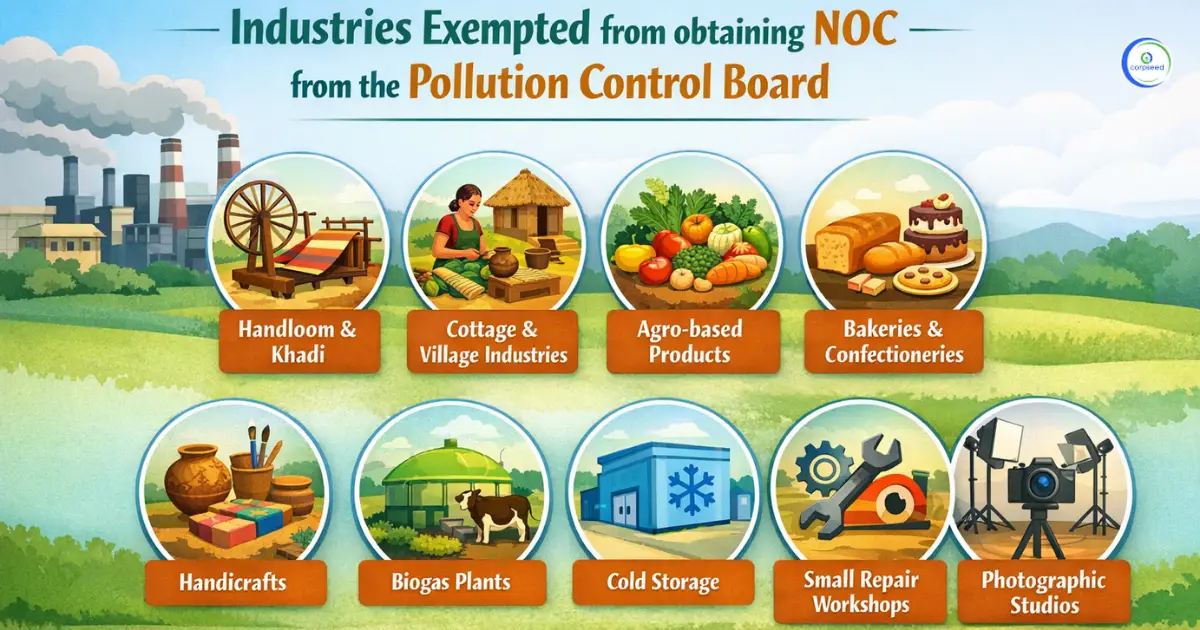
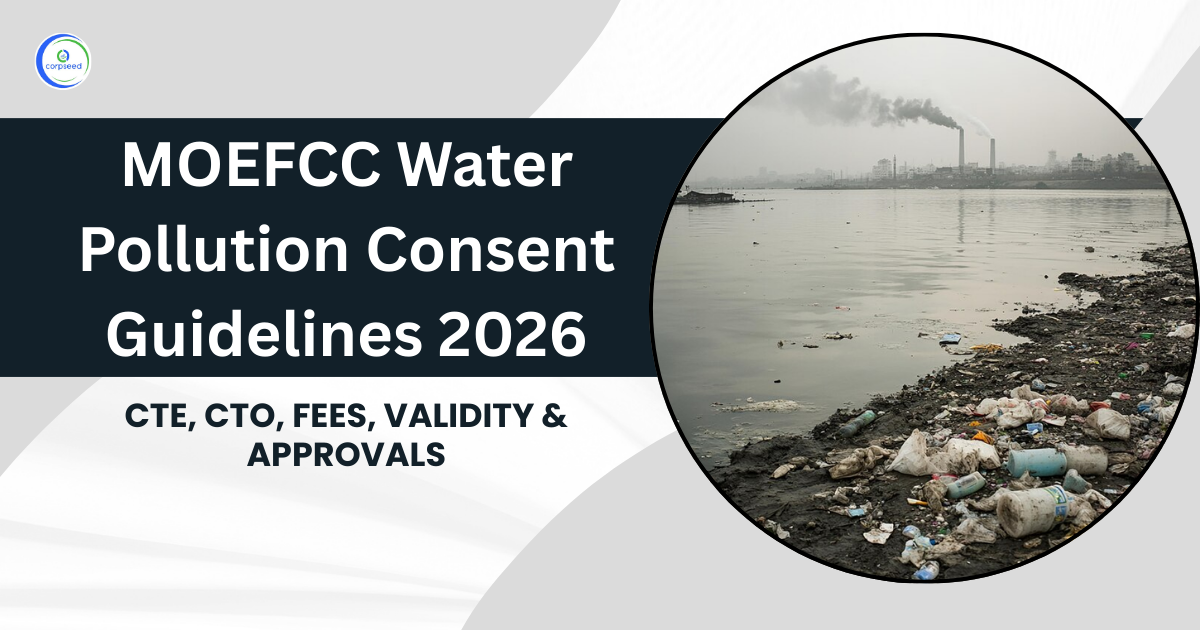
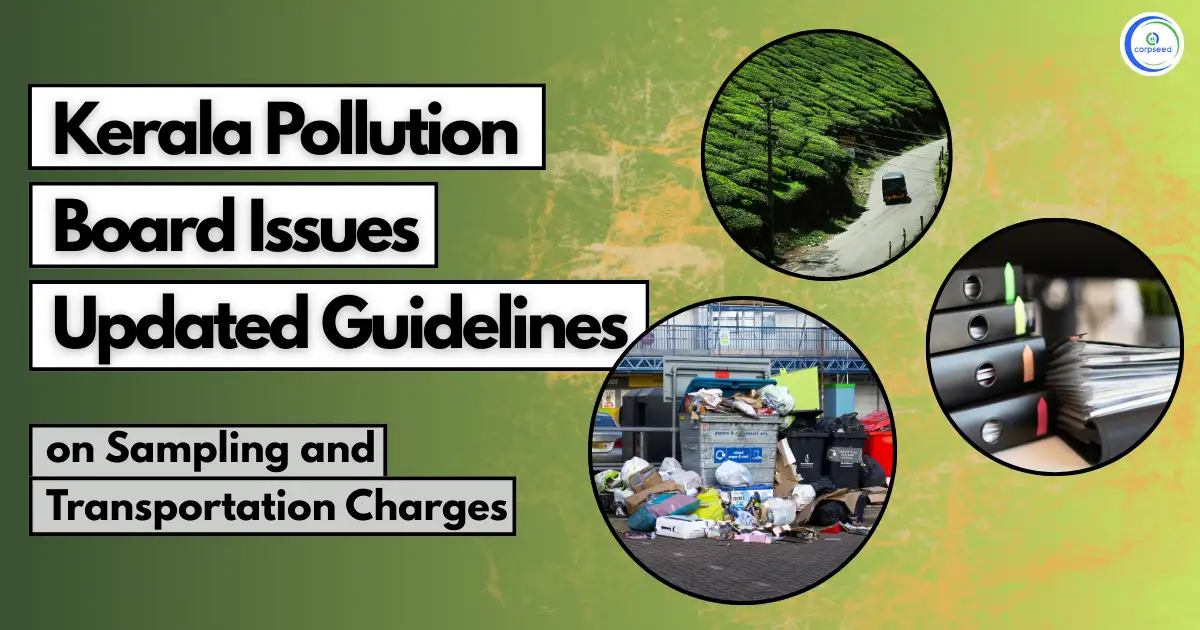
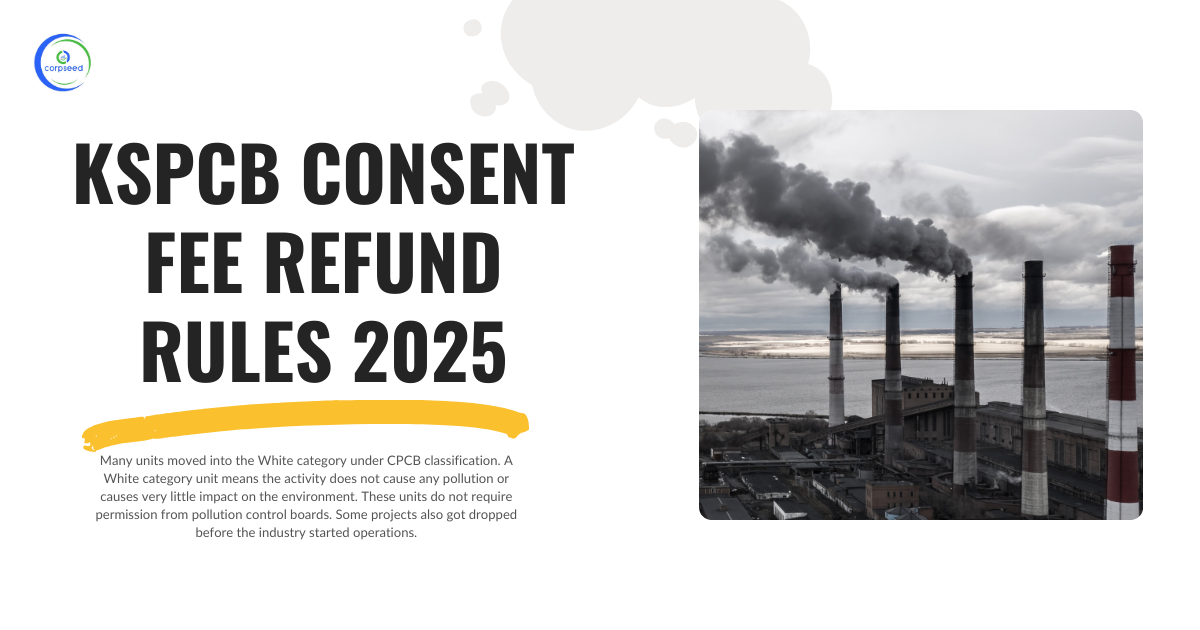
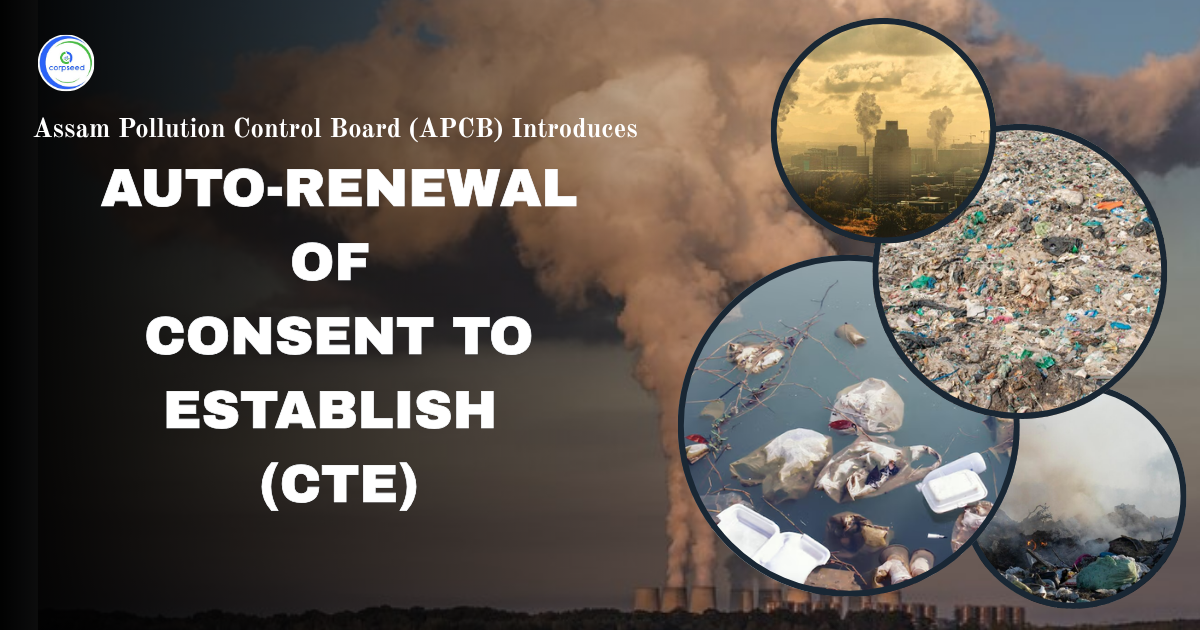

.webp)
